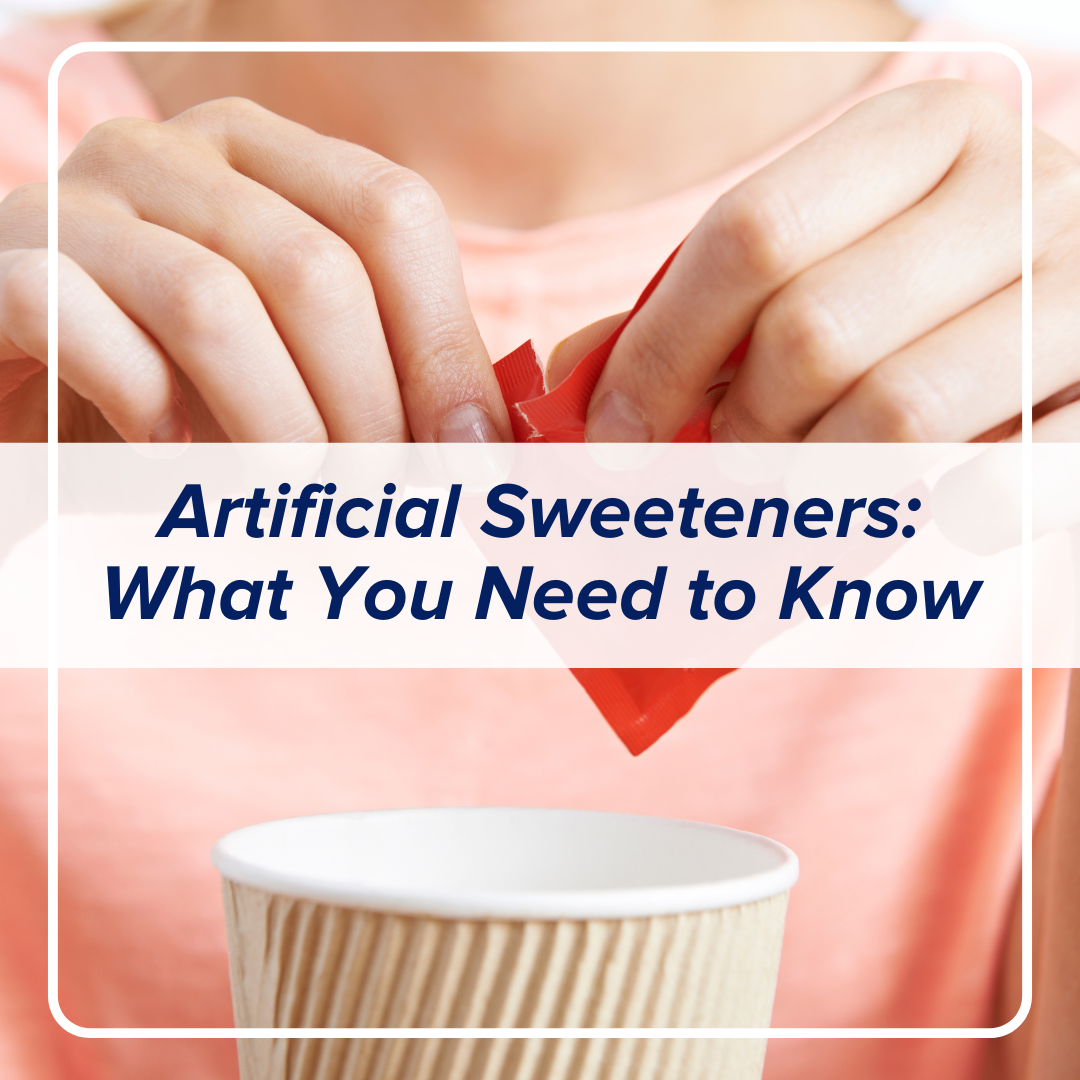Artificial sweeteners have long been controversial in the health food industry. While countless food and drink products on the market today contain these powerful additives, the long-term effects of artificial sweeteners remain widely unknown. Many people (and companies) opt to replace sugar with sweetener alternatives such as aspartame or sucralose because they contain little to no calories, and yet still provide a powerfully sweet taste. Artificial sweeteners may be a convenient, inexpensive means of injecting flavor into food products, though recent data cites it as a possible contributor to weight gain, altered taste perception, several chronic diseases, and other important health risks.
Potential Health Risks of Artificial Sweeteners
Due to the lack of sufficient research conducted on artificial sweeteners and colors, the FDA has yet to ban these ingredients or conclude that they are dangerous to your health, though preliminary data raises many alarming concerns.
Possible health risks linked to artificial sweetener consumption include:
- Weight gain
- Increased sweet cravings
- Altered taste perception due to overstimulation of sugar receptors
- Increased risk of metabolic syndrome and type 2 diabetes
- Artificial colors linked to cancer
Companies use artificial sweeteners to reduce the amount of sugar and calories in many products in an attempt to make their nutrition label appear “healthier;” though new research shows a direct correlation between artificial sweeteners and weight gain1. It is very common for people to overindulge on high calorie foods, while thinking they are saving calories by consuming a “diet” soda or any product with artificial sweetener. This can be dangerous to one’s long term health. Increased risk of metabolic syndrome and type 2 diabetes have also been linked to artificial sweetener consumption2. In addition, scientists have not completely ruled out certain cancer risks after consuming large amounts of these sweeteners over time.
Artificial sweeteners can potentially change taste perception and cause increased cravings4. This is a major health concern as artificial sweeteners are far more potent than regular sugar. For example, sucralose, the most popular artificial sweetener, is 600X sweeter than table sugar and may also be addictive4. Neotame, another artificial sweetener, is 7,000-13,000X sweeter than table sugar1. Routine use of these intensely sweet products can cause one’s taste buds to find naturally sweet foods, such as fruit, not sweet enough, and can make low-sugar foods, such as vegetables, unpalatable4. The change of taste results in excess intake of low-nutrition, processed foods that satisfy cravings, but do not offer optimal nutrition.
Types of Artificial Sweeteners
In addition to health related concerns, many consumers note an unpleasant aftertaste associated with artificially sweetened products. Common artificial sweeteners to look out for on food labels include:
- Saccharin – artificial, found in Sweet & Low (pink packet) and others
- Sucralose – artificial, found in Splenda (yellow packet)
- Aspartame – artificial, found in Equal (blue packet) and others
- Neotame – artificial
- Acesulfame – artificial
- Stevia – natural, derivative of the stevia plant
Why We Avoid Artificial Sweeteners
From the beginning, Vidafuel dietitians made the conscious decision to ban all artificial sweeteners from our products until the long-term effects are better understood. also chose to avoid chemical-based artificial colors, as they have been linked to potential health risks such as allergic reactions, attention deficit hyperactivity disease (ADHD), organ damage, cancer, and birth defects3. All of our products are made with natural coloring and a limited amount of natural sweeteners like cane and fruit sugars to ensure a satisfying taste and to promote better nutrition!
We remain committed to improving the clinical nutrition market by continuing to offer delicious products that deliver optimal nutrition. We feel a responsibility to provide our fellow dietitians with the latest scientific research and apply these findings to the development of our products.
References
- Harbolic, B. K. (n.d.). Artificial Sweeteners: Learn the Dangers and Benefits. Retrieved May 17, 2019, from https://www.medicinenet.com/artificial_sweeteners/article.htm#neotame_what_are_the_pros
- Low-Calorie Sweeteners. (2018, October 01). Retrieved May 17, 2019, from https://www.hsph.harvard.edu/nutritionsource/healthy-drinks/artificial-sweeteners/
- Stokes, M., & R.d. (2010, October 13). The Hidden Health Risks of Food Dyes. Retrieved May 17, 2019, from http://www.eatingwell.com/article/16442/the-hidden-health-risks-of-food-dyes/
- Strawbridge, H. (2018, January 08). Artificial sweeteners: Sugar-free, but at what cost? Retrieved May 17, 2019, from https://www.health.harvard.edu/blog/artificial-sweeteners-sugar-free-but-at-what-cost-201207165030


